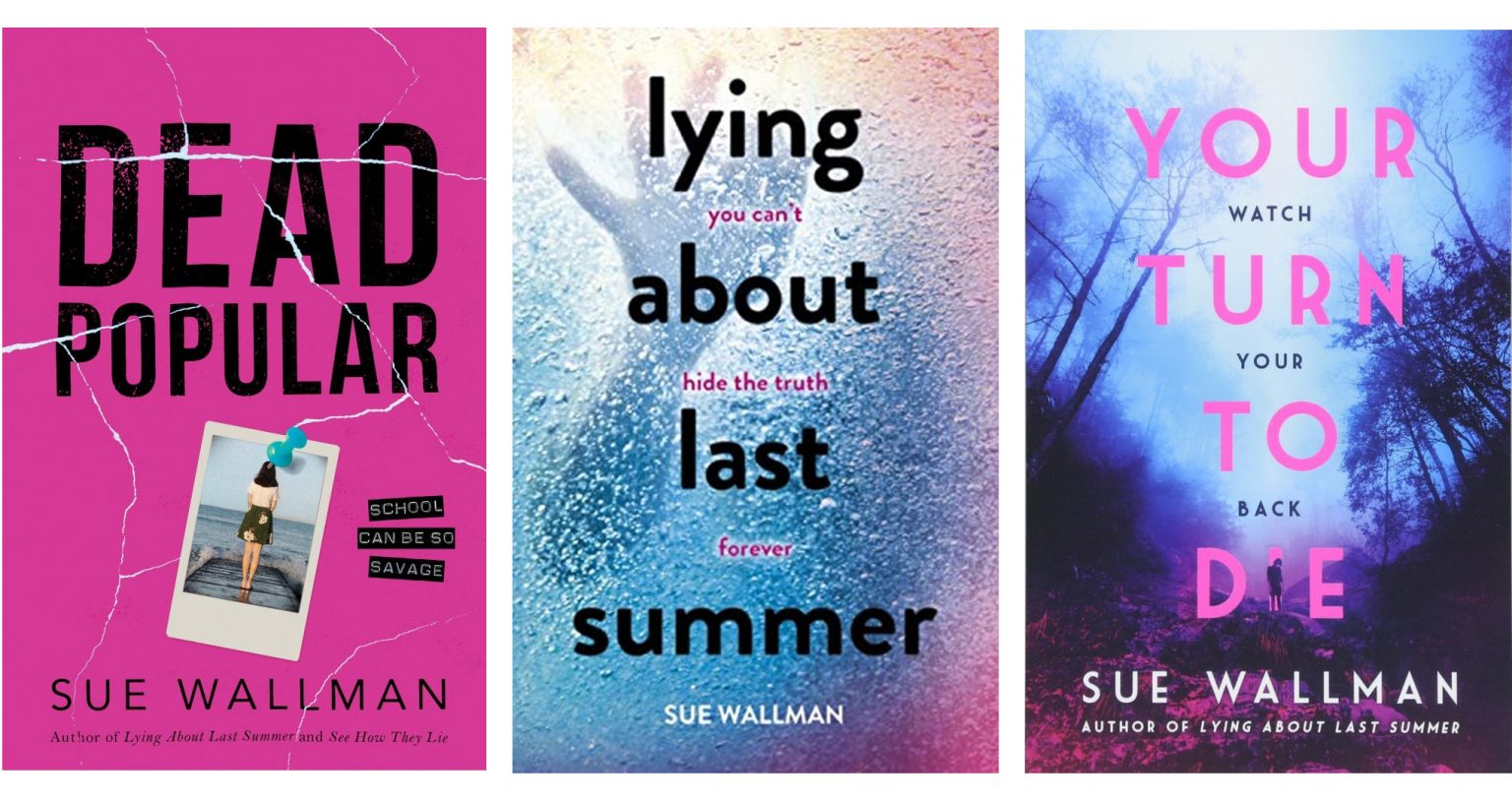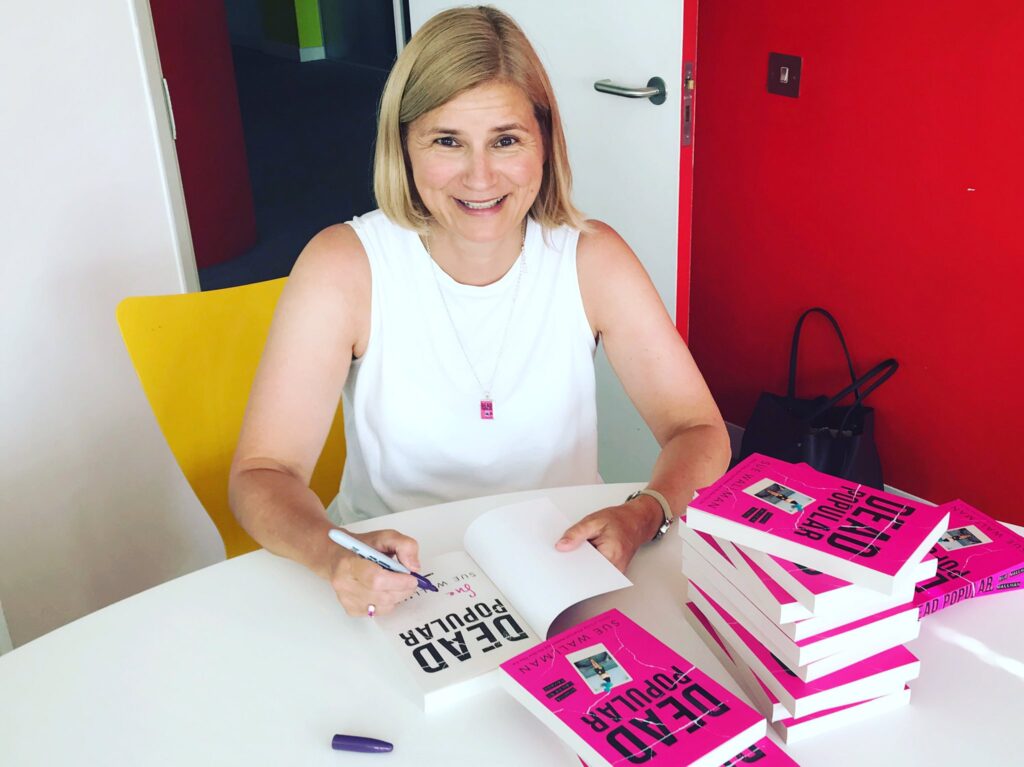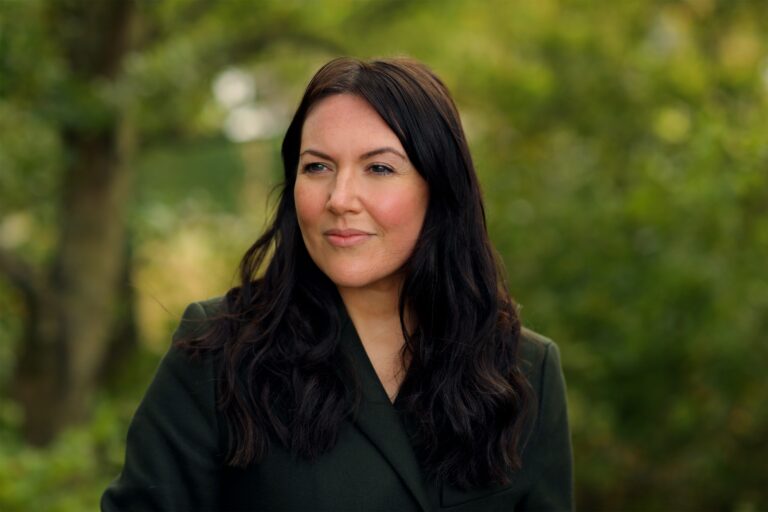The journey to publication took eight years for Sue Wallman, and picked up pace when she won The Women’s Prize for Fiction First Chapter Award in 2013. Having worked for a newspaper in Paris and magazines in London, and with a degree in English Literature & Publishing from Oxford Brooks University, that elusive publishing deal was hard-won. Her debut novel, Lying About Last Summer, was published in 2016 and won the Zoella Book Club – the fifth young adult book she’d written – and she has now published four YA books with Scholastic Books. Sue now combines writing with working in a secondary school library.
Sue chronicles her experience of the Women’s Prize x Grazia First Chapter competition for us, and where that fits into her writing career.
Why did you decide to enter the First Chapter competition in 2013?
I’d been writing seriously since 2007. By the time I saw the competition in Grazia in 2013, I had an agent but plenty of rejections, and was feeling at quite a low ebb. There is a story behind why I applied. I was taking my friend Renata to counselling sessions at a hospice after her husband died; it was difficult to get to and she didn’t drive. I would have a coffee in the cafe overlooking the garden and read while I waited for her. This one week, Renata gave me her copy of Grazia and the competition leapt out at me, mainly because I was a fan of Rachel Joyce who wrote The Unlikely Pilgrimage of Harold Fry, and she’d written the short extract that entrants had to continue. When I won the competition, Renata said her late husband had had a hand in it. There was certainly something that told me I should enter.
Tell us about your experience of the First Chapter competition back in 2013.
I was phoned up and told the news, and it felt brilliant, a real stand-out moment in my life. The awards ceremony was exciting but I didn’t know anyone else there apart from my then-husband who came as my plus-one. The Grazia staff said hello. I was nervous, but I remember certain authors being very kind and making small talk with me. I remember hanging around for ages wanting to talk to Kate Mosse as she’d been one of the judges, and she said my writing had stood out, and that felt very special. I was sad not to meet Rachel Joyce – she hadn’t been able to come. It was fantastic to be given a copy of all the shortlisted Women’s Prize novels. And the cheque, of course.
I thought winning the competition would change everything and the latest manuscript I’d worked so hard on (which wasn’t anything to do with the first chapter I’d written – it was in fact the fifth young adult book I’d written) would be snapped up immediately. It wasn’t. It took another two years for me to get a book deal and during that time I thought winning the competition hadn’t pushed me forward at all, but when I met with editors at Scholastic for a pre-deal meeting in May 2015 it was brought up in conversation so perhaps it made a difference at that point.
Winning was an incredible confidence boost at a time when I felt my writing wasn’t going anywhere. I knew I’d been picked out of a pile of hundreds of entries. It was proof that I could write fiction.As I look back now, it gives me tremendous satisfaction to know that I won the First Chapter competition. I also feel very privileged to have attended a high-level book awards ceremony – and seen Hilary Mantel, Barbara Kingsolver etc in the flesh!

Do you think Women’s Prize for Fiction is valuable for writers and readers?
I’ll always have a personal link to the Women’s Prize for Fiction from winning the First chapter competition, and I’m interested in the shortlist. I’m also interested in the judges. It’s absolutely still necessary to have a women’s book prize. Men’s fiction is still taken more seriously than women’s. You still occasionally hear men say they won’t read anything written by a woman. From my own anecdotal evidence, I know men often get better deals than women. It’s hugely valuable for female writers to have their books promoted, and winning that amount of money is incredibly useful. The vast majority of authors can’t afford to write full time.
What book by a female author would you recommend to readers?
I write Young Adult fiction, so I’m going to choose an author who writes for teenagers. My recommendation is The Hate U Give by Angie Thomas. As a school librarian, I’ve seen its theme of racial prejudice resonate with so many students and set them thinking about injustice.
What’s your key tip for other writers entering writing competition?
Think about how your writing is going to stand out in the huge pile of entries. Every word counts. Make it the best it can be.
Read more about Sue’s books on her website or @suewallman on Twitter and Instagram.








